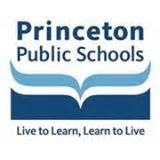The Princeton Public Schools Board of Education allegedly broke the state’s public meetings law in June in the way in which its members voted to extend an agreement for Cranbury students to attend Princeton High School, two residents claim in a lawsuit that seeks to throw out that vote.
In their July 27 civil suit, husband and wife Joel Schwartz and Corrine O’ Hara said the board voted electronically, on laptop computers, rather than by having members raise their hand or through a voice vote, “or by any other method by which the public could determine who had voted in the affirmative, who had voted in the negative and who had abstained … .”
“By voting in this fashion, any one board member’s actual vote was sheltered and hidden from the public,” the couple alleged in the lawsuit that was filed in state Superior Court, Trenton. “Except for their physical presence in front of the public, the level of information provided to the public about the vote was the same as if it had been conducted in private— none.”
School district officials hit back at the lawsuit and said votes are displayed to the public.
Superintendent of Schools Stephen C. Cochrane, in a statement, said “all votes are made in public and recorded in real-time.”
“The votes of individual board members are displayed on the large screen at the front of the board meeting room,” he said. “In addition, any member of the public can go to the BoardDocs website and see how each board member voted as soon as the vote is complete.
“Mr. Schwartz has attended numerous board meetings and is aware of how individual votes are displayed,” Cochrane said. “If he had a question or suggestion regarding the voting process, he did not voice that publicly or in the numerous private conversations he has had with me over the last several months. I wish he had.
“There is a place for lawsuits and there is also a place for common sense and conversation. If Mr. Schwartz had a concern about transparency or wanted the results of a particular vote to be read aloud by the board secretary, he simply could have asked,” the superintendent said.
The Princeton Packet live tweeted the vote tally on Twitter during the June 12 board meeting.
Schwartz, who was at the meeting seated in the front row, said by phone on July 30 that he “did not see anything.”
“I’ll leave that for the judge to decide,” he said. “It’s a legal question. So I’ll leave that for the judge and for my attorney to comment on.”
Superior Court Judge Mary C. Jacobson has scheduled a hearing on the case for Sept. 27.
“When the vote was taken, neither I nor any of the 30 or more people in the room were provided with clear information as to who voted and how they voted,” O’Hara said in a statement. “Furthermore, no official voting result was provided by the board until the meeting minutes were made public one month later.”
The couple are looking for the judge to issue an order saying the board’s “use of devices for its members to cast secret votes electronically during a public meeting to be in contravention of the Open Public Meetings Act,” the lawsuit states.
“Unfortunately, this lawsuit seems to be less about democracy and more about disruption,” Cochrane said. “The lawsuit not only calls into question the vote on the extensively discussed partnership with Cranbury, but it also attempts to call into question every vote taken by the board in the last year, including personnel decisions, special education placements, policy revisions, and materials purchased for our classrooms.
“There is exciting and important work ahead of us in the Princeton Public Schools. I would like nothing more than to focus our time and resources on those efforts,” he said.
Board President Sullivan called the legal action a “frivolous lawsuit that is wrong on the facts and wrong on the law.”
“Taxpayers should be outraged the board and the administration have to spend time and money with a group of people who want to re-litigate an issue that was already extensively discussed and voted on in public,” he said. “The discussion on the matter of Cranbury is over, period.”
Schwartz, a regular at board meetings, had been critical of extending the arrangement through which Cranbury residents of high school age may attend Princeton High School.
On June 12, the board voted 7-1, with two members abstaining, to renew the deal, which would have expired at the end of June 2020, by 10 more years to 2030.
The two communities have had a send-receive relationship since 1991. For the 2018-19 school year, Cranbury will pay tuition at a rate of $17,439 per student for some 280 students, Cranbury officials have said. In all, the total payment will be $4.8 million, the second largest source of revenue in the Princeton school budget after property taxes.
Cranbury Board of Education President Karen Callahan could not be reached for comment. The Cranbury board voted on June 13 to approve the deal with Princeton one day after Princeton took that step.

